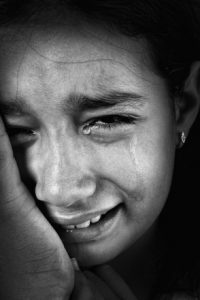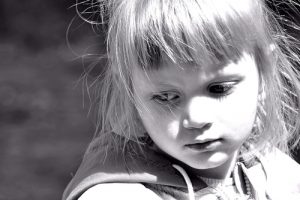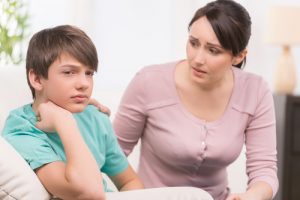Children grieve and process loss differently than adults. This a critically important concept for all grief counselors to grasp in their understanding of helping children deal with grief. Children depending on their age as well as mental and emotional maturity all process grief differently. Understanding this key concept can prevent numerous errors in child development when helping a child a through the process of grief.

In the past, emotional and mental barriers to development of children were innocently but ignorantly created by concerned caregivers seeking to shield children from loss. Children were denied final farewells at death scenes, or prevented from attending a funeral. Hiding death, even that of a family pet as simple as a fish, were all considered important steps in protecting a child’s innocence from death.
In reality, sparing children the realities of death, or diminishing the event of death caused more damage to the mental and emotional development of children. Children would then inherit improper coping mechanisms as adults when dealing with loss. They would also have grief complications with past losses. The inability to say good bye, find closure, or fully understand the nature of the loss crippled their abilities to deal with grief as adults.
In preventing these issues, adults, caregivers and grief counselors need to address loss to children. An explanation of the loss should correlate with the understanding and mental maturity of the child regarding the finality of death. Death and loss should be seen as opportunities for the child to learn about death, especially in regards to smaller losses.
In dealing with these losses, caregivers should express death clearly without any figurative language and also encourage children to express their feelings and thoughts. If a child wishes to express that is fine and if a child wishes to express less, that is fine. The importance is that children are able to express their feelings and know that life will continue.
It is critical to allow children to express themselves as they fit not only for their own understanding but also to dismiss any ill thoughts regarding the loss that may fester within the child. Children sometimes can blame themselves for the death of an individual or hold guilt that most adults would dismiss. It is hence important to discuss the death clearly but also to have a full understanding of the child’s understanding of the loss in relationship to him or her.
By responding uniquely to each child’s need during a loss based on the child’s understanding, one can eliminate any possible grief complications and also allow the child to fully express him or herself. This enables a better transition mentally, socially and emotionally.
To learn more how to speak to and understand grieving children, then please review AICHP’s Child and Adolescent Grief Counseling Program. The program is open to currently certified Grief Counselors and is offered as an advanced specialty program. Those who meet the qualifications can become certified in this advanced specialty field and learn to better help children cope with loss and grief.





